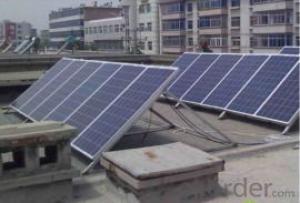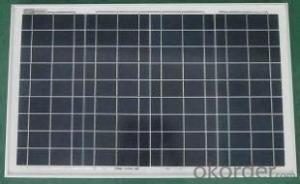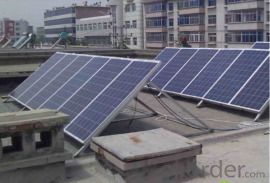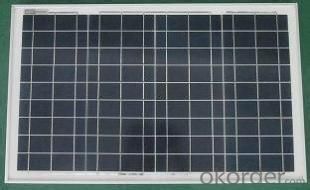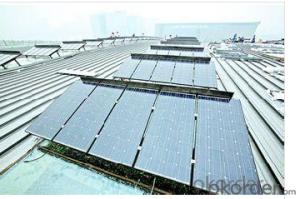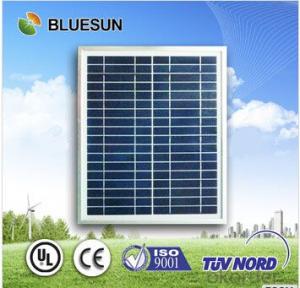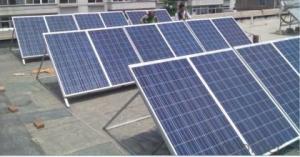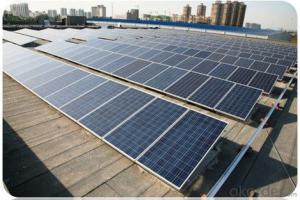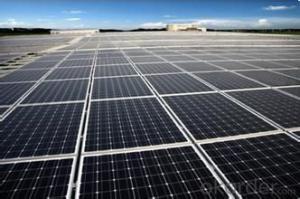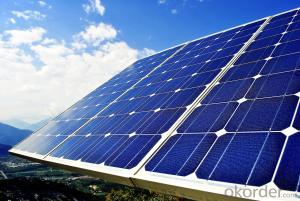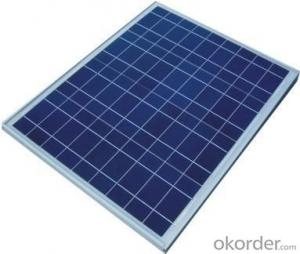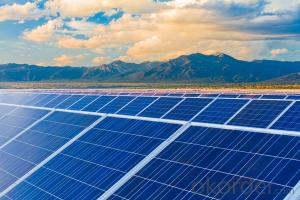250w Polycrystalline Solar Panels for RV Trailers - Stocks in Haikou
- Loading Port:
- Hai Kou
- Payment Terms:
- TT OR LC
- Min Order Qty:
- 26 pc
- Supply Capability:
- 10000 pc/month
OKorder Service Pledge
OKorder Financial Service
You Might Also Like
Characteristics of Polycrystalline Solar Panel
I Solar Cell : High efficiency crystalline solar cell. Even if under the weak light, the solar module can produce maximum power output.
II Tempered glass (toughened glass): Anti-reflecting coating and high transmission rate glass increase the power output and mechanical strength of solar module.
III EVA and TPT: Using high quality EVA and TPT to prevent destroying and water.
IV AI frame: Without screw, corner connection. 6 holes on the frame can be installed easily.
V Junction box: Multi function junction box with water proof.
VI Long lifetime: ≥25 years; Less power decrease.
VII Good performance of preventing from atrocious weather such as wind and hails.
VIII Resisting moisture and etching effectively, not effected by geology. .
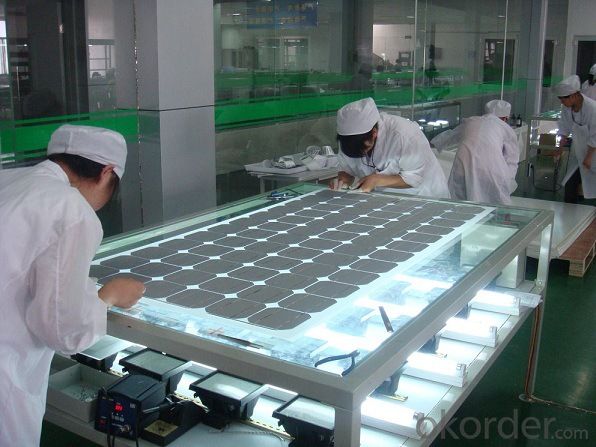
Standard Test Conditions of Polycrystalline Solar Panel
The opto-electrical specifications shown below are stabilized values being measured at Standard Test Conditions of multicrystalline silicon Solar Panel, Irradiance: 1000W/m2, Spectrum: AM1.5 at 25°C, The info below is subject to manufacturing tolerances. Where appropriate minutes of measurement are available and are used for the dimensioning of the installation.
Currently,We have 250w-300w solar panel stocks in Both West and East Coasts made in Vietnam,India,Korea,Malaysia and Japan.Meanwhile,we also arrange production line in Wisconsin,USA.If you're interested,please contact us soon.
Thanks for your time.
- Q: what do I need to do to disconnect a solar panel from a battery to protect the panel?
- Know that solar panels almost always incorporate a blocking diode to prevent a battery from back-feeding through an un-illuminated panel. Know that solar panels are usually connected to a battery via an electronic switching charge controller, not directly connected. Know that when a solar panel is open-circuited (disconnected from everything) it's terminal voltage will rise to almost twice it's nominal voltage. (22V is common for a 2V panel), unless it is stored in total darkness.
- Q: we are trying to reduce a solar panel from 9 volts to 3 volts. What do we need to make this work...
- You okorder /
- Q: If a solar panel (using 36 3x6 solar cells) puts out 60 watts, how many panels would I need (for a house) if I use a max of 2300 kWh in a month? I checked my electric usage for the past 2 years and the kWh is usually lower but I wanted to use the most kWh used (2300) for my question. Thanks!
- The latter one has some strategies to consider for cutting your power consumption even more by timing your freezers and refrigerators..
- Q: Are there any aesthetic considerations when installing solar panels?
- Yes, there are aesthetic considerations when installing solar panels. The design and placement of solar panels should be mindful of the overall appearance of the building or property. Factors such as panel color, size, orientation, and integration with the existing structure are important to ensure that the solar panels blend well with the surroundings and do not compromise the visual appeal of the property.
- Q: Can solar panels be installed on windows or glass surfaces?
- Yes, solar panels can be installed on windows or glass surfaces. These are known as building-integrated photovoltaics (BIPV) and are designed to replace traditional building materials such as windows, skylights, or facades with solar panels. BIPV systems are a great way to generate electricity while maximizing space and utilizing underutilized surfaces.
- Q: Can solar panels be installed in a shaded area?
- Solar panels can still be installed in a shaded area, but their efficiency will be significantly reduced as they rely on direct sunlight to generate electricity.
- Q: I riped two solar panels out of some solar light and tested them. I found out that they both produce 2 volts(I have no idea on the watts or amps). Iquot;ve hooked them up to an electric motor that can be driven by a AA battery, but when I hook the solar panels up to them nothing happens. What is wrong?
- The solar cells you have are not providing enough current to operate the motor. There are special low power motors which can operate directly from a solar cell but it sounds like you do not have one of these. Instead you have a common .5V DC hobby motor which requires substantially more current to operate. You can use the original circuit to charge the batteries and use the charged batteries to run the motor. The batteries would be able to supply enough current to operate the motor, but for a limited time. 8 hours of charging might give you less than 5 minutes of motor operation. An LED will draw about 20ma. In a solar light such a small current draw from an LED or two can provide hours of light. A Small DC motor might easily require 300ma to run and over 500ma to start. Running a motor from the same battery at over 5 times the current draw will result in less than /5 of the run time compared to the low current LED. So if an LED operates for 300 minutes the motor would run for less than 20.... The small solar cell size cannot provide enough current to operate the motor directly. Only by slowly charging a battery first would you be able to use the collected and stored Solar energy to operate your motor.
- Q: The colder a solar panel gets the more efficient it seems to be. As the panel warms, it loses some efficiency. Why is this so? Please explain in a way you would expect a high school kid to understand it, as I am a high-schooler and i have to explain this to other high-schoolers.
- All PV Solar Panels are affected by heat. The hotter the solar panel, the lower the power output - but how significant is the effect. I decided to test one of our small 6V 250mA Solar Panels to find out. Solar Panel next to halogen lamp with temperature probe. Reproducing the kind of temperatures solar panels experience in hot climates is not easy on a cloudy May day in the UK, so a 50 Watt halogen office lamp was used at a distance of 55mm from the solar panel as a sun substitute. This guaranteed a constant level of light would be incident upon the solar panel ensuring the quality of the results collected.
- Q: Can solar panels be used for powering a wastewater treatment plant?
- Yes, solar panels can be used to power a wastewater treatment plant. Solar energy can be harnessed and converted into electricity, making it a sustainable and environmentally friendly option for powering such facilities. The generated electricity can be utilized to operate various equipment and processes involved in wastewater treatment, reducing dependency on traditional power sources and minimizing the carbon footprint of the plant.
- Q: Can solar panels be installed on a balcony or terrace?
- Yes, solar panels can be installed on a balcony or terrace. However, it is important to consider factors such as the available space, orientation, shading, and structural integrity of the balcony or terrace before installation. Additionally, local regulations and building codes may also need to be taken into account.
Send your message to us
250w Polycrystalline Solar Panels for RV Trailers - Stocks in Haikou
- Loading Port:
- Hai Kou
- Payment Terms:
- TT OR LC
- Min Order Qty:
- 26 pc
- Supply Capability:
- 10000 pc/month
OKorder Service Pledge
OKorder Financial Service
Similar products
Hot products
Hot Searches
Related keywords
